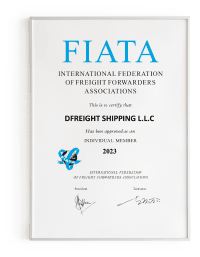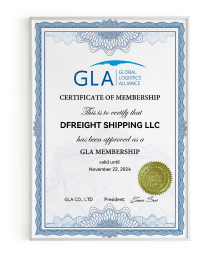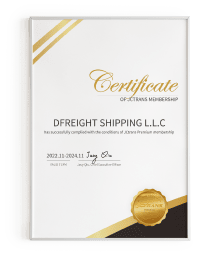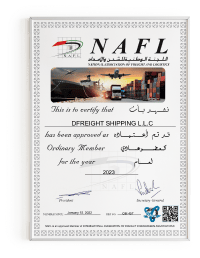Air Freight to Algeria
Air Freight to Algeria
Fast, Reliable, and Efficient Air Freight to/from Algeria
DFreight Air Freight Service is your top choice for swift and dependable air cargo shipping to/from Algeria. For a variety of commodities, including perishable goods, healthcare supplies, electronics, machinery, or anything that demands fast delivery from Algeria to the UAE and vice versa, we’ve got you covered. With years of expertise, comprehensive solutions, a commitment to on-time delivery, cutting-edge technology, top-notch security, competitive pricing, and a global reach, we’re here to make your airfreight experience seamless and worry-free. Trust DFreight for excellence in air shipping and submit your inquiry right away to receive the best competitive prices for your air cargo to/from Algeria.

Algeria Exports and
Imports
The top exports of Algeria are Petroleum Gas, Crude Petroleum, Refined Petroleum, Nitrogenous Fertilizers, and Ammonia, exporting mostly to Italy, Spain, France, South Korea, and United States.
The top imports of Algeria are Wheat, Concentrated Milk, Cars, Soybean Oil, and Corn, importing mostly from China, France, Spain, Germany, and Italy.
Market Update
According to OEC, in 2021, Algeria was the number 55 economy in the world in terms of GDP, the number 63 in total exports, the number 66 in total imports, the number 118 economy in terms of GDP per capita and the number 103 most complex economy according to the Economic Complexity Index.
Algeria exported US$19.11 Million during 2021 to the United Arab Emirates and imported US$796.58 Million during 2021 from the UAE, according to the Trading Economics database.
In 2023, the freight market between Algeria and the UAE has experienced notable growth and collaboration, reflecting their increasing trade ties. The year has witnessed a surge in bilateral trade, driven by shared economic interests and opportunities. Algeria’s rich reserves of hydrocarbons and minerals align with the UAE’s energy needs and construction sector demands. This synergy has led to enhanced cooperation in the movement of goods like petroleum products, construction materials, machinery, and electronics between the two countries. The Algeria-UAE freight market in 2023 showcases a promising trend of deepening trade relations, as both nations work towards fostering mutually beneficial trade partnerships and exploring avenues for economic growth.
Banned Products
Algeria has established a list of prohibited products for import to ensure public health, safety, and national security. These banned items include narcotics, counterfeit currency, and illegal weapons. Additionally, certain types of agricultural products, foodstuffs, and chemicals that may pose health risks are restricted from import. The regulations also extend to the import of items that violate intellectual property rights or infringe on cultural and environmental preservation efforts. Algeria’s import regulations are designed to uphold responsible trade practices and protect its citizens from potential harm associated with the import of these banned products.


Documents & Customs Clearance
One thing to take into account when exporting cargo internationally is customs clearance. You must be aware of the customs clearance regulations of the destination countries when shipping cargo from Algeria.
The following documentation must be given to local customs for international shipments by the supplier, consignee, or intermediary:
– A commercial invoice
– A packing list
– A bill of lading
– A certificate of origin
Shipping Different Commodities from/to Algeria
How to Ship Auto Parts to UAE
How to Ship Frozen Food: An Ultimate Guide
Shipping Valuable Items in UAE: A Step-by-Step Guide
Major Air Cargo Port
-
Italy
Germany
United Kingdom
Netherlands
France
Turkey
Spain
Denmark
Switzerland
Czech Republic
Hungary
Poland
Romania
Greece
Portugal
Slovakia
Sweden
Ireland
-
China
India
Taiwan
Hong Kong
Japan
Singapore
South Korea
Malaysia
Qatar
Indonesia
Saudi Arabia
Thailand
Bangladesh
Lebanon
Kuwait
-
Uganda
Congo
Egypt
Rwanda
Kenya
South Africa
Morocco
Algeria
-
-
-


We consolidate cargo from Germany, Belgium, France, Luxembourg, and nearby cities to Amsterdam, then ship it directly to Dubai.
Certificates & Memberships




- Stress-Free Documentation We simplify the paperwork process, making it easy for you to focus on what matters most – your shipment.
- Clear Cost Breakdown Our pricing is straightforward, with a detailed breakdown so you can see exactly where your money goes.
- Dedicated Support We’re just a click away. Your dedicated support team is there to address any questions or concerns promptly.
- Live Shipment Tracking Easily follow your ocean and air freight shipments 24/7 with real-time tracking. No more unexpected delays.
Ship Your Cargo with Ease
Get Started Today!
Why Choose Consolidated Air Freight?
Guaranteed Space
Secure your cargo space without worries.
Reliable Scheduling
Count on our reliable predictive schedules
Nationwide Collections
We pick up your cargo throughout Benelux and Germany
Regional Trucking
Benefit from local trucking within Europe and GCC
Competitive Pricing
Enjoy market-competitive air freight rates
Fast Delivery
Rapid and secure shipping for time-sensitive items
Regional Trucking
Benefit from local trucking within Europe and GCC
Competitive Pricing
Enjoy market-competitive air freight rates
Fast Delivery
Rapid and secure shipping for time-sensitive items
Guaranteed Space
Secure your cargo space without worries.
Reliable Scheduling
Count on our reliable predictive schedules
Nationwide Collections
We pick up your cargo throughout Benelux and Germany
Any Questions?
Reach out to us, and our experts will work with you to discover the tailored solution you need.





 Germany
Germany Netherlands
Netherlands Luxemburg
Luxemburg Belgium
Belgium





